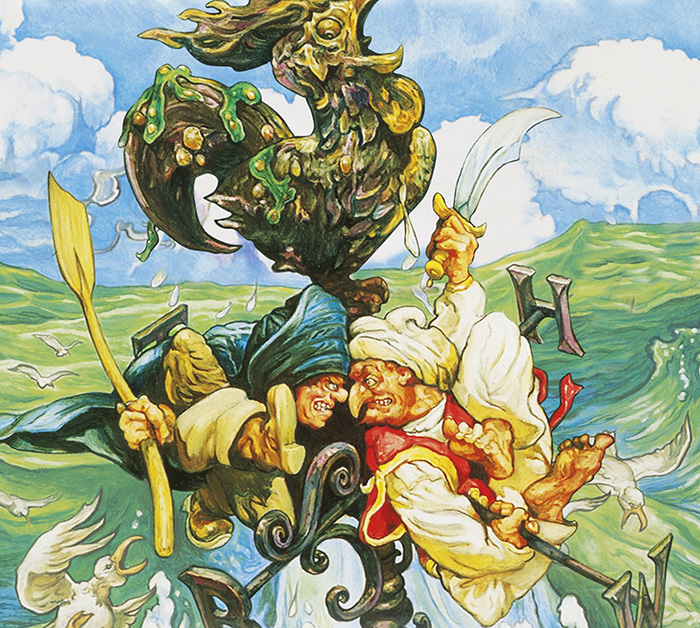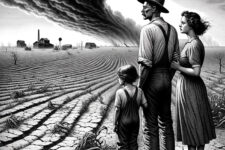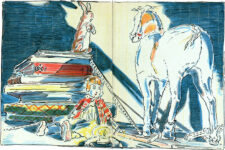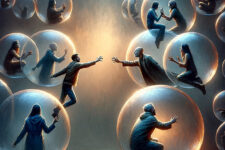
“It was much better to imagine men in some smoky room somewhere, made mad and cynical by privilege and power; plotting over the brandy. You had to cling to this sort of image, because if you didn’t then you might have to face the fact that bad things happened because ordinary people, the kind who brushed the dog and told their children bedtime stories, were capable of then going out and doing horrible things to other ordinary people. It was so much easier to blame it on Them. It was bleakly depressing to think that They were Us. If it was Them, then nothing was anyone’s fault. If it was Us, what did that make Me? After all, I’m one of Us. I must be. I’ve certainly never thought of myself as one of Them. No one ever thinks of themselves as one of Them. We’re always one of Us. It’s Them that do the bad things.”
― Jingo, Terry Pratchett
This quote comes from “Jingo,” a novel by Terry Pratchett, part of his critically acclaimed Discworld series. The Discworld novels are known for their wit, wisdom, and the way they mirror real-world issues through the lens of a fantastical universe.
“Jingo” deals with themes of nationalism, war, and the absurdity of xenophobia, set against the backdrop of a conflict between the fictional countries of Ankh-Morpork and Klatch over a newly emerged island.
Pratchett’s quote is a profound commentary on the human tendency to externalize evil and blame societal problems on an undefined “other.” It challenges the comforting notion that only a malevolent, powerful few are capable of causing widespread harm, suggesting instead that ordinary people are capable of extraordinary cruelty under certain circumstances. This idea is unsettling because it suggests that the potential for wrongdoing is not confined to a distant, malevolent “other” but is a part of human nature itself.
The passage reflects on several important psychological and sociological concepts:
-
The “Us vs. Them” mentality: This is a fundamental aspect of in-group/out-group dynamics, where people tend to categorize others as belonging to either the in-group (“Us”) or the out-group (“Them”). This simplifies complex social realities but also leads to stereotyping, dehumanization of the “other,” and justification of acts of cruelty against them.
-
Cognitive dissonance: The discomfort one feels when holding two contradictory beliefs simultaneously. In this case, it’s the conflict between seeing oneself as good and recognizing that one is capable of the same evils attributed to “Them.”
-
Moral disengagement: Mechanisms that allow individuals to justify or excuse harmful actions against others. By attributing malevolence and cruelty to an abstract “Them,” people can distance themselves from the responsibility of these actions.
-
Ordinary people committing extraordinary evils: Pratchett touches on the disturbing reality that historical atrocities and everyday cruelties are often committed not by caricatured villains, but by ordinary individuals who, in other circumstances, lead unremarkable lives. This has been documented in various psychological experiments and historical analyses, such as the Milgram experiment on obedience to authority figures and Hannah Arendt’s concept of the “banality of evil” in the context of the Holocaust.
The quote is a call for self-reflection and an acknowledgment of personal responsibility. It suggests that acknowledging the capacity for wrongdoing in all of us is the first step towards preventing it. By recognizing that “They” are not so different from “Us,” we can begin to understand the complexities of human behavior and the importance of fostering empathy and moral integrity in ourselves and our communities.









